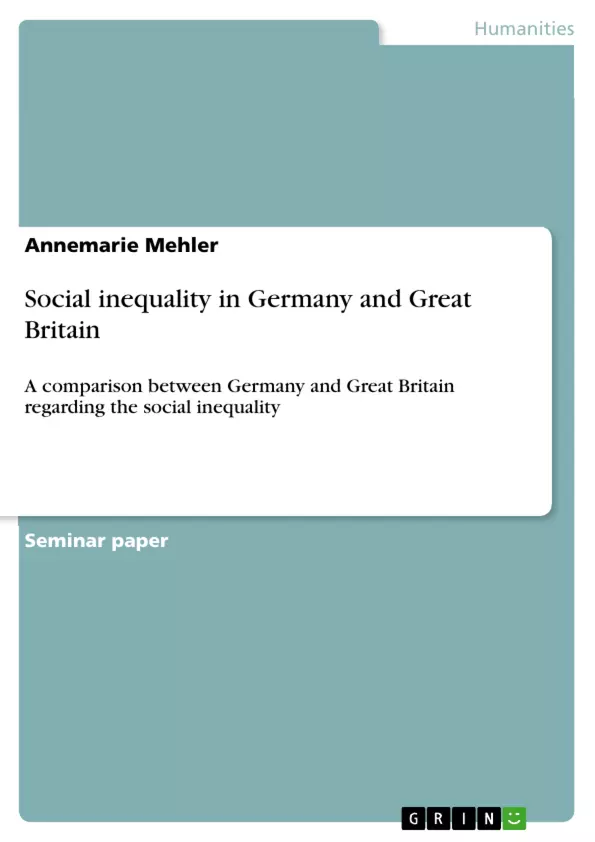I structure this paper from the general to the particular. In order to understand this topic, the first thing to do is to define the term "social inequality". This is followed by the topics of "Social Inequality in Germany" and "Social Inequality in England" and a comparison of Germany and England.
According to Hradil (2005), social inequality is about the unequal distribution of goods considered 'valuable' in a society. Possession or lack of these goods has a major impact on people's living conditions; people who have more 'valuable goods' are better off than those who have less. It should be noted that the value of a good has no universal validity and is flexible. Depending on historical developments or the spatial context, goods vary in value. Whether and to what extent a good is considered 'valuable' depends on the values that prevail in a society. It is through the possession of goods that those values can be realized (see Hradil, 2005, p.28). An example of a valuable good is work. This fulfils the social idea of financial security. Unemployed people are disadvantaged in many areas of life compared to those who have work; moreover, work can be differentiated into lower and higher paid jobs.
Inhaltsverzeichnis
- Social Inequality
- Social inequality in Germany
- Health
- Occupational integration and employment status
- Education
- Poverty
- Social inequality in Great Britain
- Health
- Occupational integration and employment status
- Education
- Poverty
- Comparison Germany and Great Britain
Zielsetzung und Themenschwerpunkte
This paper compares social inequality in Germany and Great Britain, focusing on specific areas like health, employment, education, and poverty. It aims to provide an overview of these issues in both countries and present a comparative analysis.
- Defining "social inequality" and its impact on living conditions.
- Exploring the extent of social inequality in both Germany and Great Britain.
- Examining how social inequality manifests in different areas of life.
- Comparing the levels of social inequality in Germany and Great Britain.
- Analyzing the factors contributing to social inequality in each country.
Zusammenfassung der Kapitel
The paper begins by defining social inequality and its core concepts. It then delves into the specific situation in Germany, exploring the social inequality in areas like health, employment, education, and poverty. The paper continues by presenting a similar analysis of the social inequality in Great Britain. Finally, it compares the levels of social inequality in both countries, using various indicators and statistics.
Schlüsselwörter
The core keywords and topics explored in this paper include social inequality, Germany, Great Britain, health, occupational integration, employment status, education, poverty, Gini coefficient, Human Development Index (HDI), and Gender Inequality Index (GII). The paper delves into these concepts to analyze and compare the levels of social inequality in both countries.
- Citar trabajo
- Annemarie Mehler (Autor), 2020, Social inequality in Germany and Great Britain, Múnich, GRIN Verlag, https://www.grin.com/document/1421518



